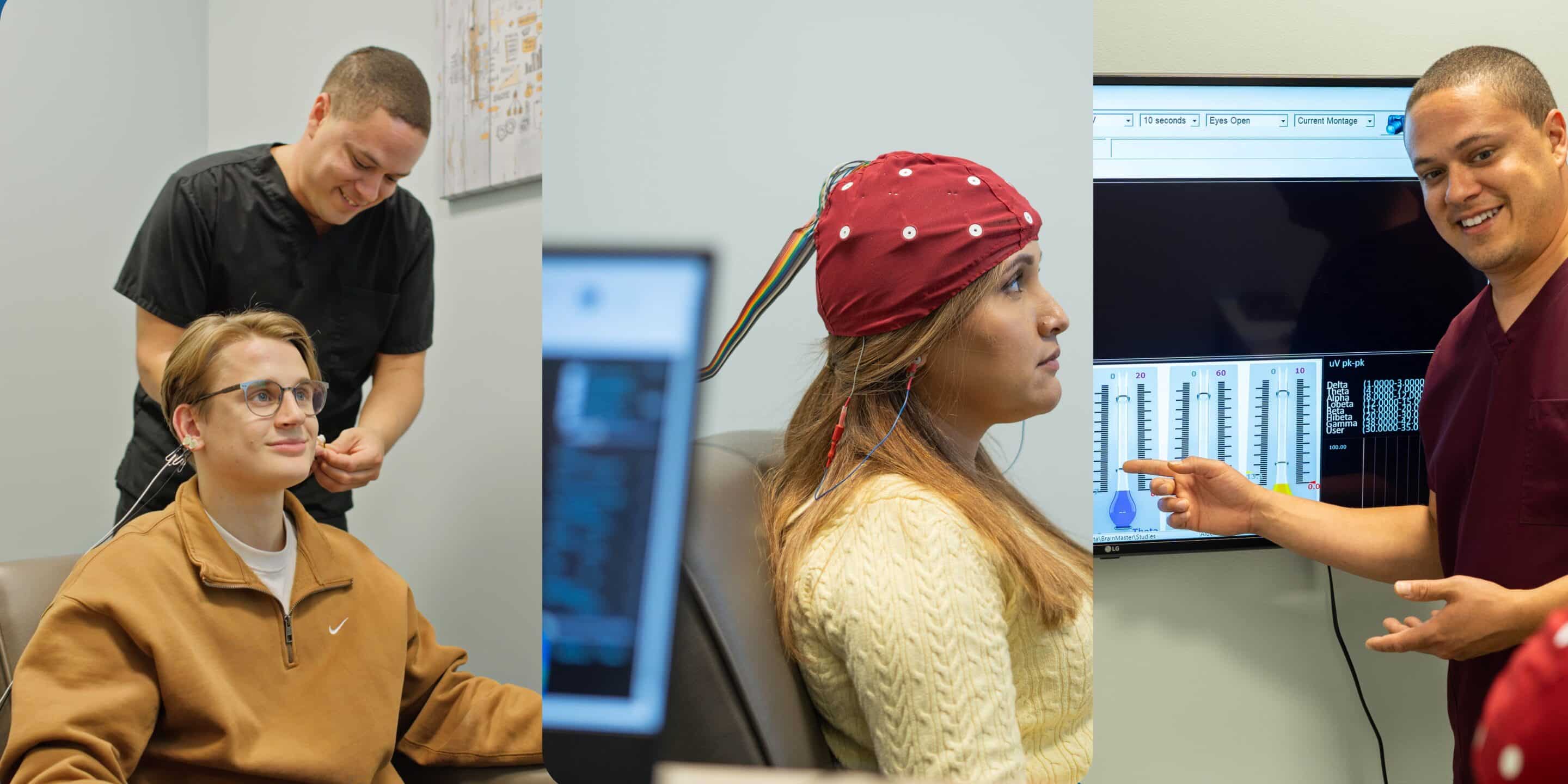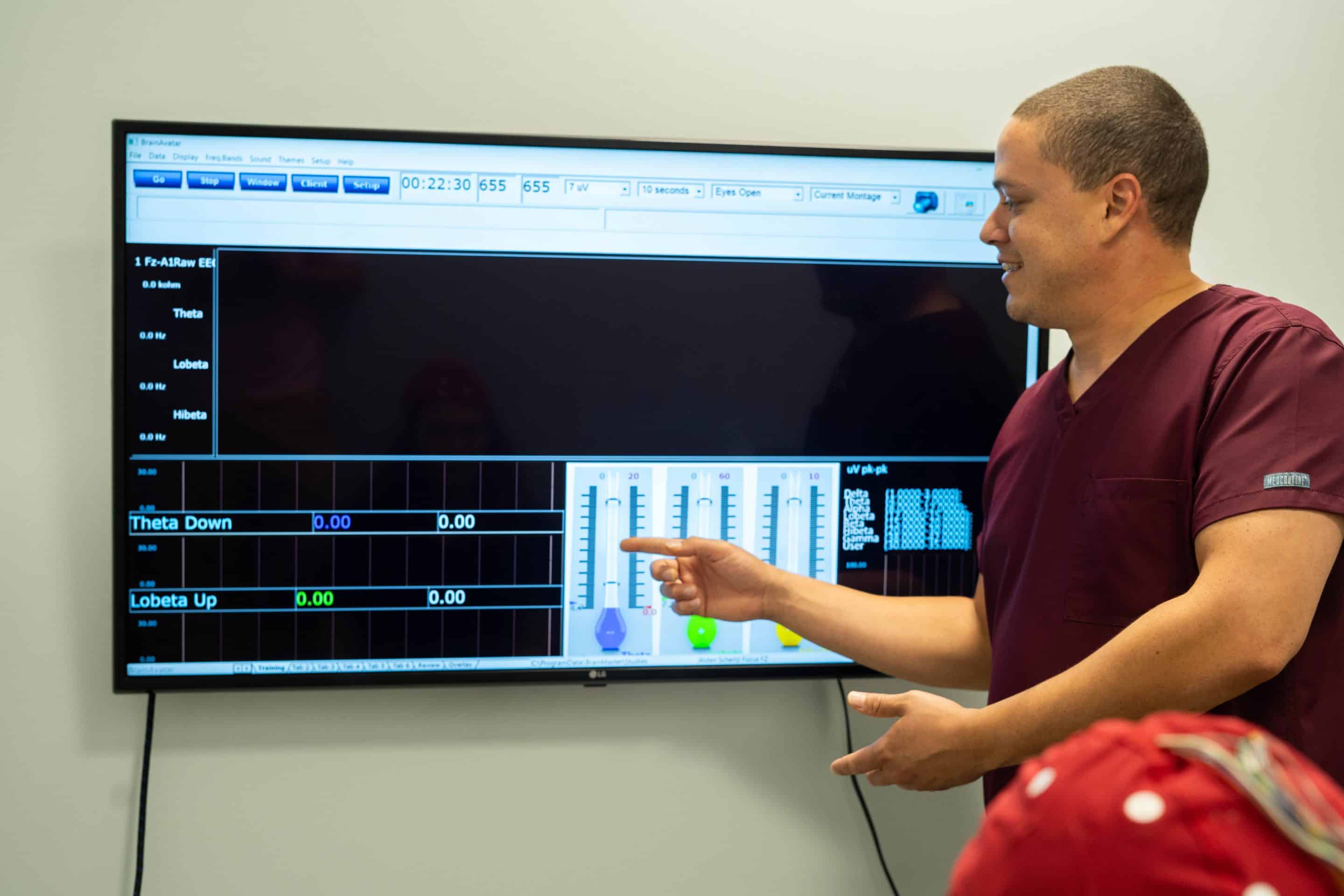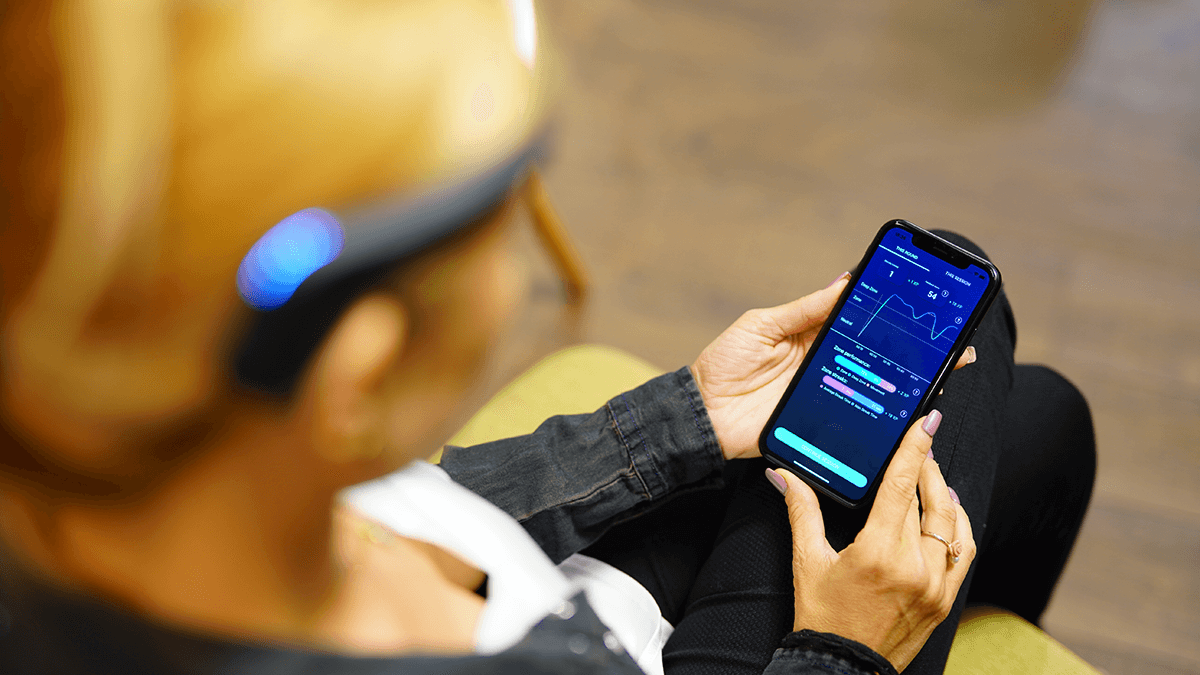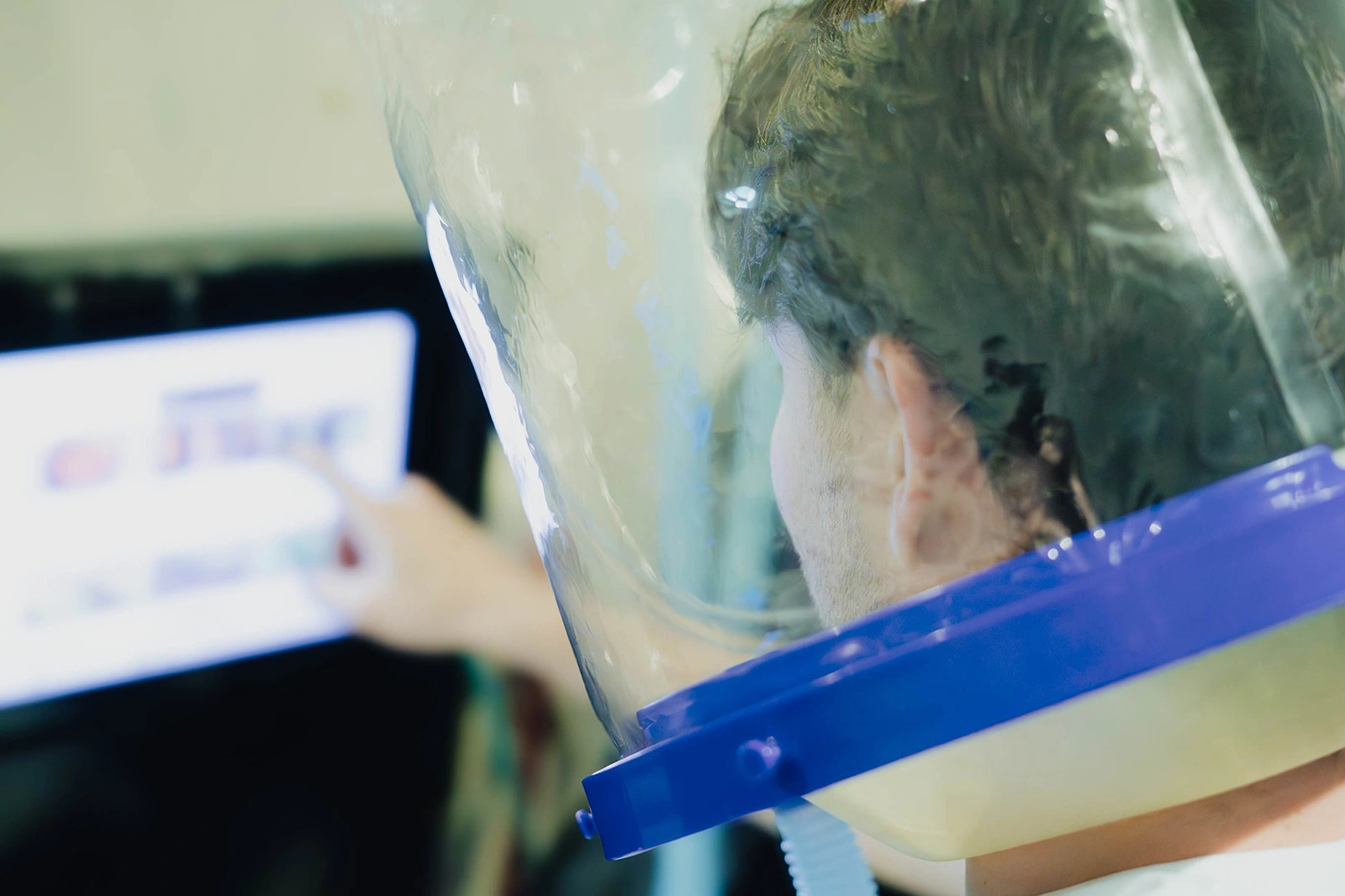
Substance Use Disorders Begin in the Brain
Substance Use Disorders (SUDs) are not just behavioral problems — they are neurological conditions. Prolonged substance use changes how the brain functions. These changes impact critical areas that control reward, decision-making, emotions, and self-regulation.
The result? Individuals struggling with addiction often feel “stuck” in harmful cycles, even when they genuinely want to stop. These brain-level imbalances make relapse common and recovery difficult without targeted brain-based support.
That’s where neurofeedback comes in.
How Neurofeedback Helps the Brain Heal
Neurofeedback is a non-invasive brain training method. It helps your brain recognize and correct unhealthy patterns. During a session, sensors placed on the scalp measure your brainwave activity in real time.
When your brain enters a healthier, more regulated state, the system gives positive feedback — such as a moving visual, brighter screen, or pleasant sound. These cues act as rewards, teaching your brain what “calm,” “focused,” or “stable” feels like.
Over time, your brain learns to recreate these states on its own.
Benefits of neurofeedback for addiction include:
- Improved emotional control
- Reduced impulsivity
- Decreased drug cravings
- Enhanced focus and mental clarity
In essence, neurofeedback trains your brain to self-regulate — which is critical in managing substance use disorders and breaking free from addictive patterns.
Research Backs Neurofeedback’s Impact on Addiction
A 2025 systematic review published in Psychiatry Research examined 32 studies on neurofeedback as a treatment for substance use disorders. The studies included:
- 18 EEG-neurofeedback (EEG-NF) studies
- 11 fMRI-neurofeedback (fMRI-NF) studies
- 3 fNIRS-neurofeedback studies
What Did the Studies Show?
- Drug cravings were consistently reduced
- Alpha-theta protocols were the most effective EEG method
- Neurofeedback also improved attention, mood and impulsivity
- This comprehensive review supports neurofeedback as a promising tool for treating substance use disorders by directly addressing the brain dysfunctions that underlie addiction.
Neurofeedback at Extivita:Two Ways to Heal
In-Clinic Neurofeedback
Our in-person Neurofeedback sessions are conducted in a calming environment using state-of-the-art EEG systems. A trained technician guides each session and adjusts protocols as your brain heals.


Home Neurofeedback
Get started from the comfort of home with our Home Neurofeedback program. We’ll ship the equipment directly to you. You’ll receive a personalized plan and have monthly virtual check-ins with our neurofeedback technician. It’s ideal for flexibility and long-term use.
Every neurofeedback program starts with a qEEG brain map to identify imbalances and guide your customized treatment.
Enhance Results with Hyperbaric Oxygen Therapy (HBOT)
Substance abuse often leaves the brain starved of oxygen, damaged by toxic exposure and chronically inflamed. HBOT floods the brain with healing oxygen, boosting recovery.
HBOT Supports:
- Reduced Inflammation in the Brain
- Cellular Repair
- The creation of new neurons (neurogenesis)
- Enhanced mitochondrial energy production
Hyperbaric Oxygen Therapy (HBOT) is a powerful, science-backed treatment that enhances healing by delivering 100% oxygen under pressure.
At Extivita, you’ll relax inside a pressurized chamber and breathe pure oxygen. This boosts your body’s oxygen absorption by up to 15 times. That oxygen floods your tissues — including the brain — and jumpstarts the healing process.

The Power of Combining Neurofeedback + HBOT
When neurofeedback is combined with HBOT, the results are often faster and more profound. These therapies work hand-in-hand to support both the structure and function of the brain.
The combination of HBOT with Neurofeedback is greater than the sum of its parts:
- HBOT repairs and nourishes brain cells
- Neurofeedback retrains how those cells communicate
Together, they accelerate recovery from substance use disorders by reducing cravings, improving focus, and enhancing emotional regulation.This integrative approach offers real hope for lasting recovery — treating the root cause, not just the symptoms, of addiction.
Ready to Start Your Brain-Based Recovery?
Healing begins in the brain. If you or a loved one is ready to break free from addiction, reach out today to learn more about our integrative neurofeedback and HBOT programs that offer a holistic path forward.
